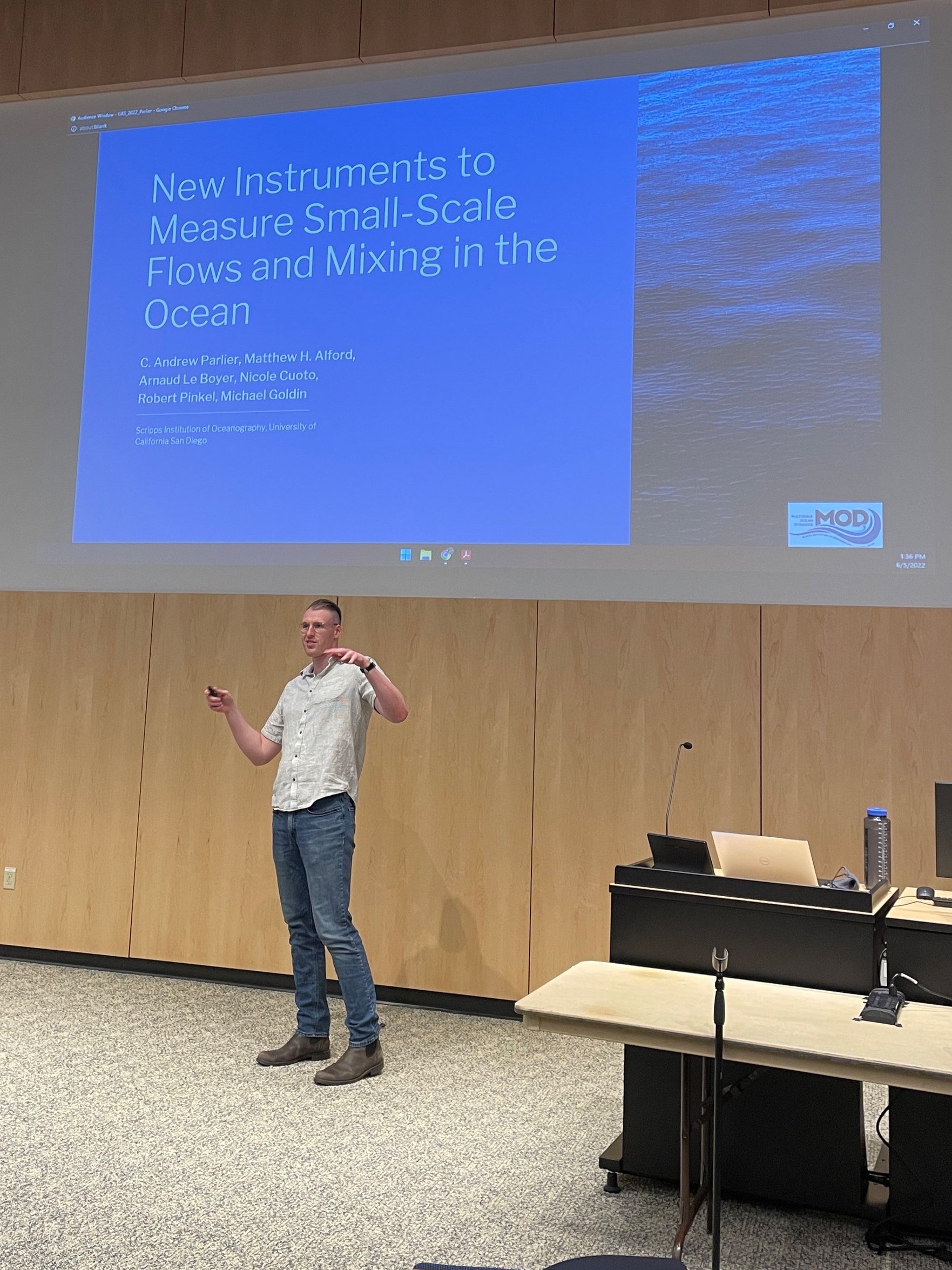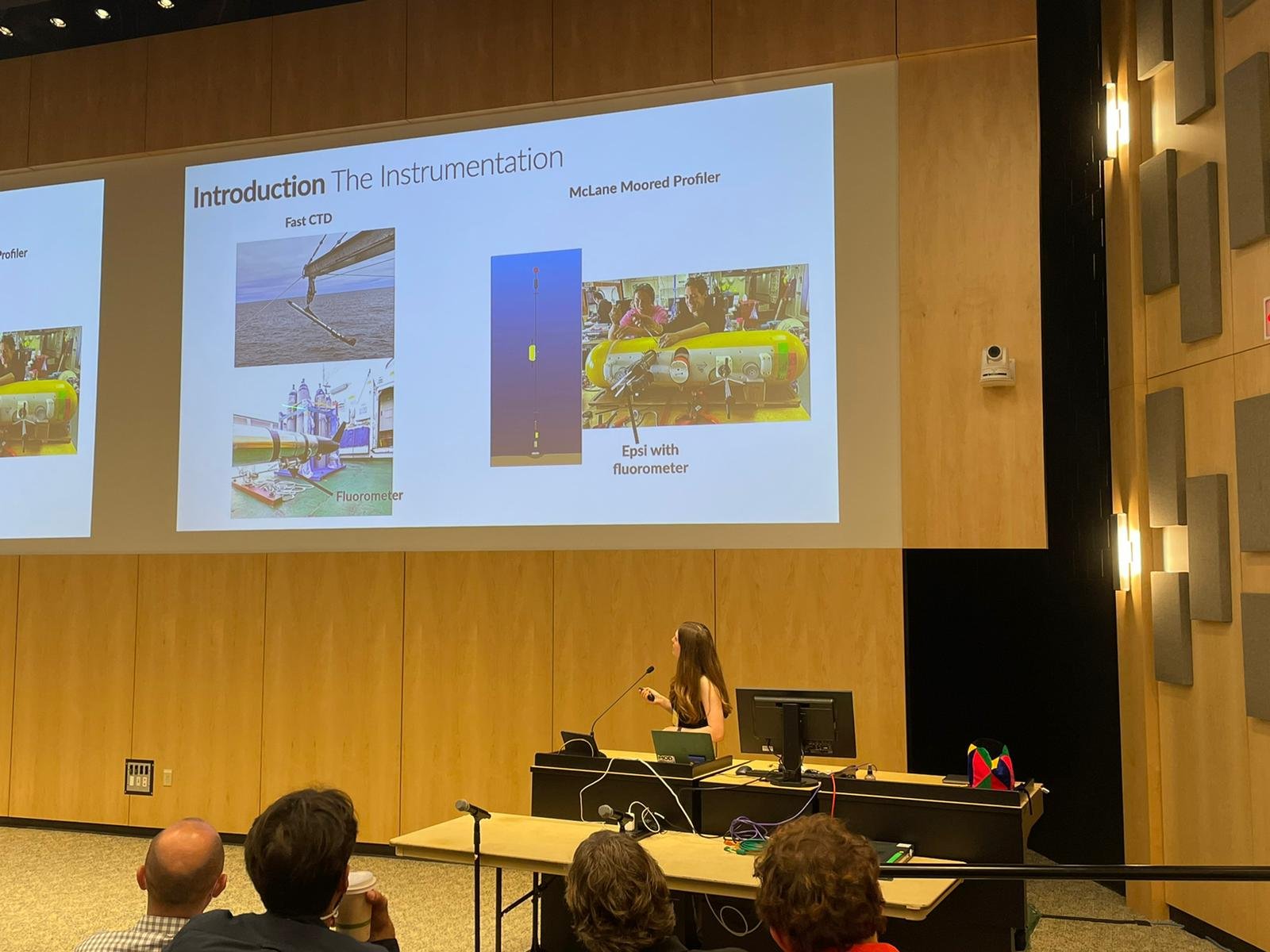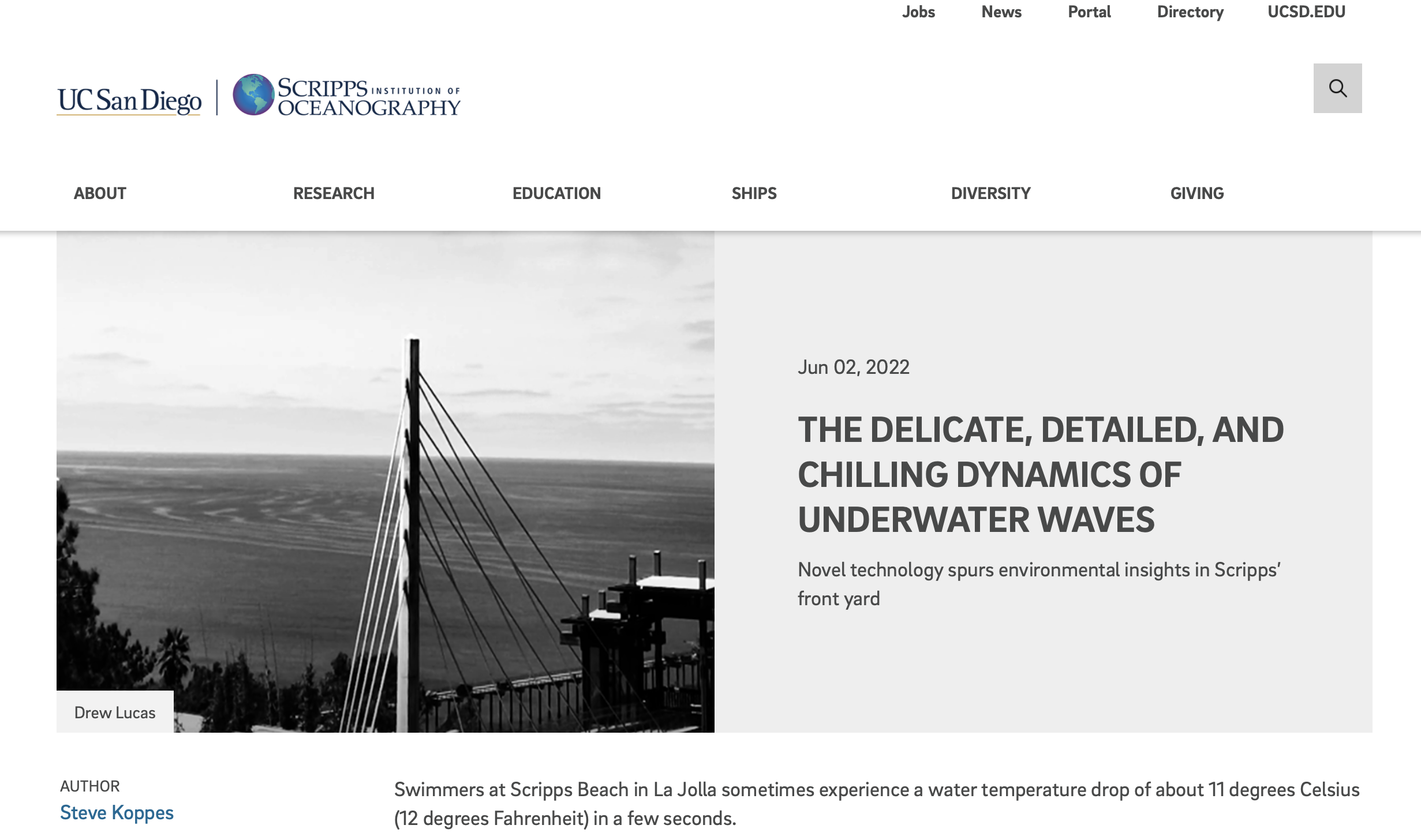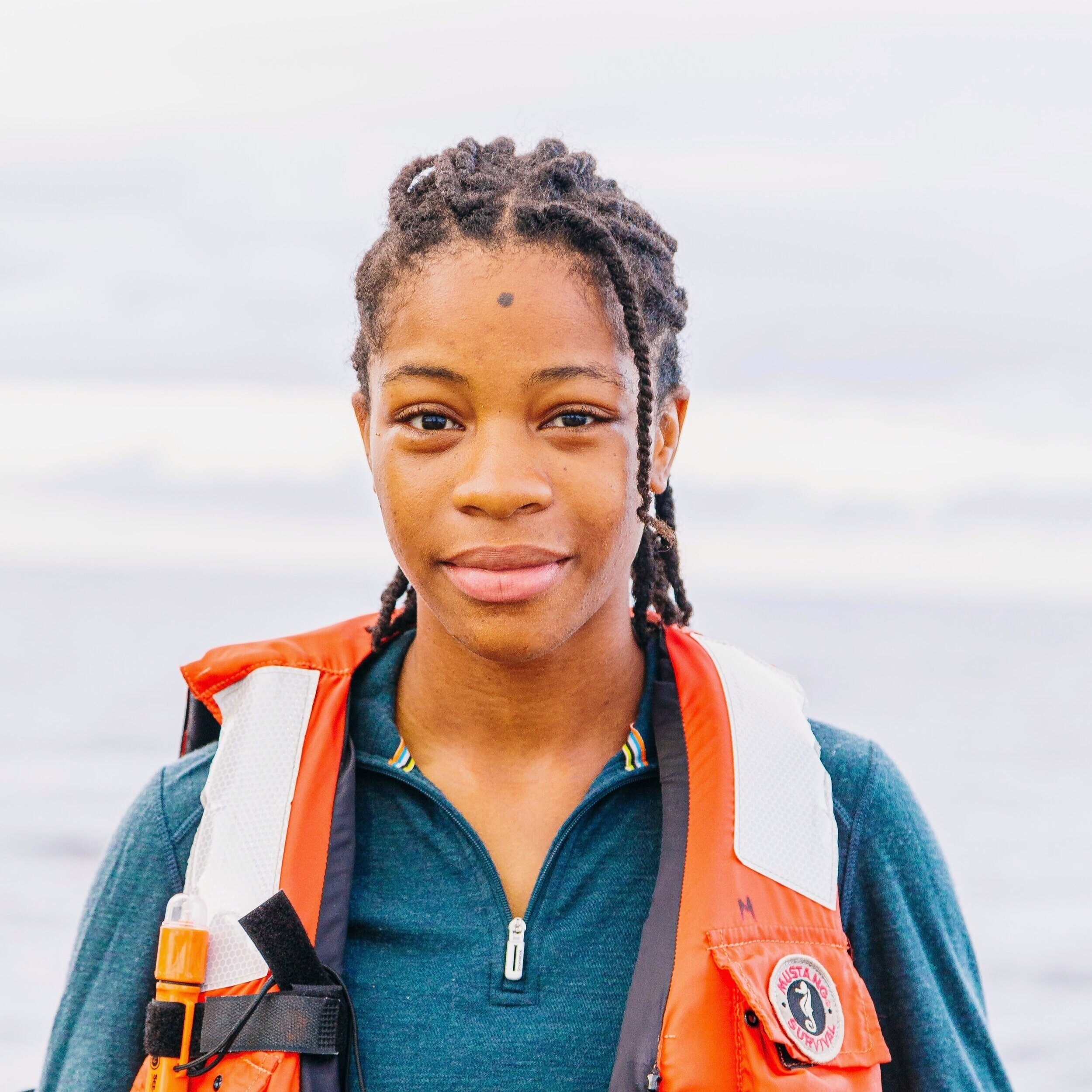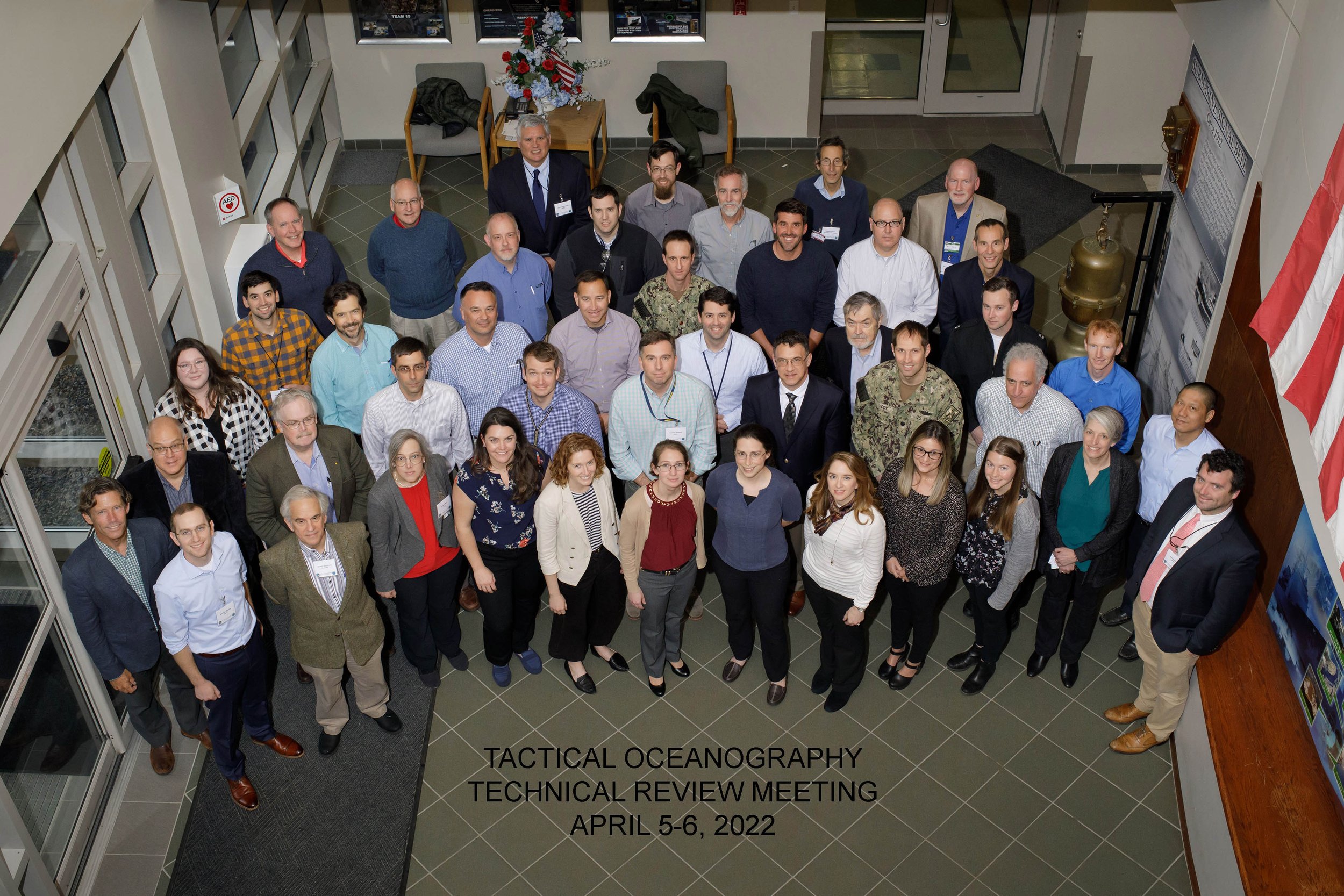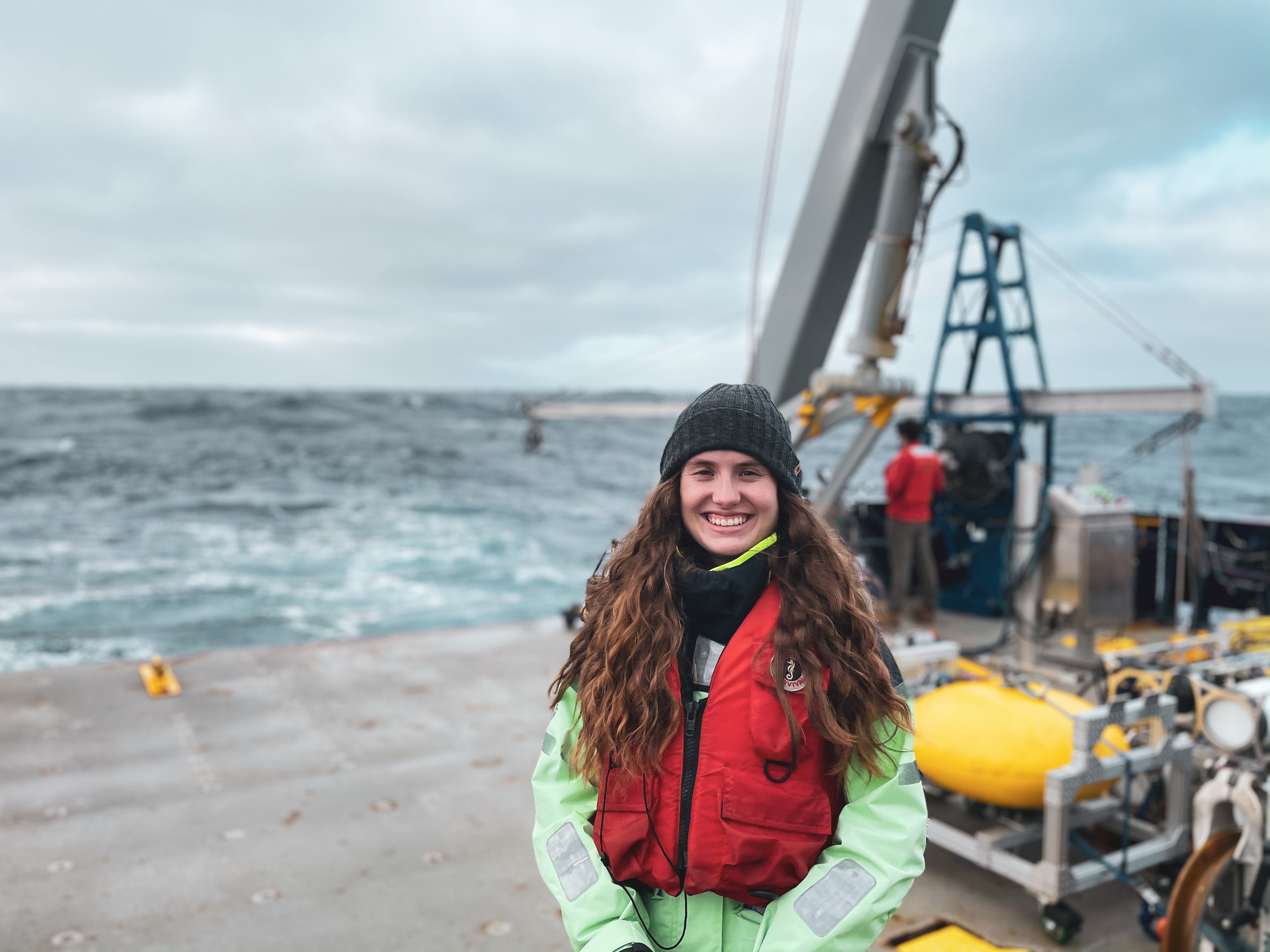Tell us a bit about yourself and what you are studying now —
I am from Little Rock, Arkansas, and I went to Georgia Tech where I studied environmental engineering. I also did research there, with a focus on environmental fluid mechanics and ocean wave energy conversion.
My research covers the link between sub-mesoscale dynamics and climate in salinity-stratified regions, which include the Indian Ocean and polar regions (mainly the Arctic Ocean). I also plan to pursue how these links relate to policy for fisheries or marine protected areas. My work is part of MOD’s MISO-BOB project. In 2019 I went on a research cruise in the Indian Ocean where we made observations of boundary layer dynamics and how they influence air-sea interactions. I’m currently studying a dense, coastally upwelled filament that is subducting into the interior and how precipitation impacts those processes.
In the long term I want to work on climate policy and climate adaptation/resilience, especially for communities that are disproportionately impacted by climate change. Many of my activities outside of research are meant to give me exposure to that type of career. Because of my involvement with different organizations, ; I was recently inducted into the Bouchet Graduate Honor Society. Bouchet was the first African American to graduate with a PhD in the USA and the society upholds the tenets of character, leadership, advocacy, scholarship, and service. I am honored to have been selected as someone who can carry on that legacy.
What keeps you excited and interested in working in the field of oceanography?
I think my work is fun, exciting, and impactful. Oceanography is deeply tied to climate and the work we do is tied to understanding climate change. For example, with MISO-BOB we want to predict the monsoon, which is a huge water resource for people in the area. In fact, at the same time as we did the research cruise in the Indian Ocean, Chennai [a littoral city in south-east India] actually reached day zero: they completely ran out of water. We need the ability to understand how the climate is changing and how resources are changing with it, and physical oceanography is needed to understand air-sea interactions and the hydrological cycles associated with that.
Oceanography and climate science are powerful, and I’m grateful to be a part of the work. My understanding of the ocean will give me the tools to explain science to the public and to politicians, and my expertise will allow me to direct climate policy.
When you were a kid, did you expect to be a scientist/engineer?
My parents started preparing me for science by teaching me math at a very young age, and my godparents were engineers, so by six or seven years old I knew I wanted to be one too. My parents also thought it was important to study engineering so that I would never have to struggle financially: they pushed me to pursue what I loved and what would give me a better life.
I have always been an environmentalist and I have always cared about the climate. My best friend group in high school was also very connected to nature, and we loved being outside, hiking together, and bike riding along the river. I did a program called Envirothon where my focus was on forestry, so I learned all the tree names and their importance in the ecosystem. AP environmental science then spurred my interest in climate change. After all that I knew what I wanted to do, so I went to Georgia Tech for environmental engineering.
What skills or abilities do you think are useful when applying to graduate school in oceanography?
When applying for grad school in oceanography you should be passionate about the field and have a strong math and science background. Know why you want to pursue that degree and how you'd like to impact the world with it.
I also think self-advocacy is really important: it’s been a theme throughout my life and it’s what helped me get here. It means being able to ask for what you need. It’s important to be confident in yourself. You might face doubt and other people’s disbelief, and if you don’t have a strong sense of self-worth in your own abilities and intellect it’s easy to believe what others tell you. Being able to network and talk to people is also very helpful. Making connections broadens the scope of your world and helps you find out where you can go and what you can do, and it helps to build support systems that can carry you.
Passion is helpful for staying motivated and driven, but you also need a project management mindset. You need to have a plan and be able to organize what is done and when, then be able to execute it by knowing the steps you need to take.
What drew you to study at Scripps?
People ask me “how did you get interested in the ocean?” And the short answer is that I wasn’t. The field I was hoping to move into after undergrad was renewable energy, specifically involving ocean waves and energy policy. Then my advisor told me I should apply to Scripps, even though I wasn’t familiar with the field of oceanography. I ended up being accepted into a renewable energy research program at Stanford and oceanography at SIO. After visiting both places, I ended up liking Scripps more: the environment seemed more collaborative and that is something I value, as opposed to the more competitive nature of some research programs. Also, the AOS (Applied Ocean Science) program was very flexible, and I was drawn to the possibility of a master’s in mechanical engineering along with a PhD in oceanography. Another benefit was the connection to climate change research, and UCSD as a whole, since I want to be involved in policy too. So, I decided to go to the nice school on the beach!





